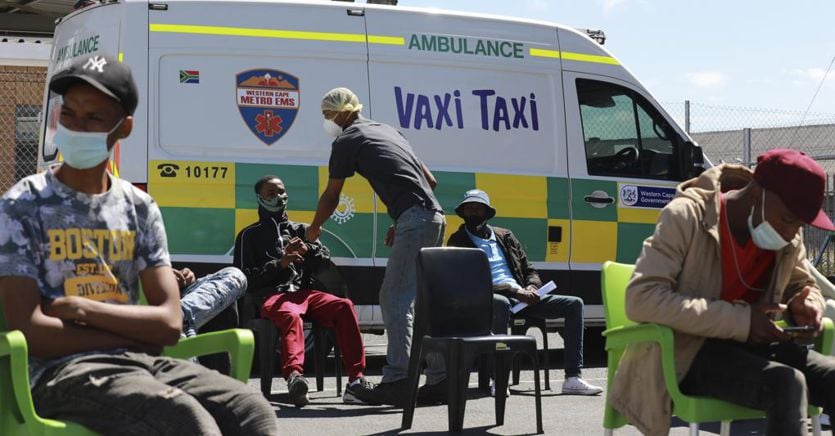Before us there are still years of “challenges and difficulties” to defeat Covid. With vaccinations and the worldwide immunization rate – currently around 60% – that can really make a difference in future scenarios. The experts of the‘International science council – the organization that brings together over 200 national and international scientific associations – in a recently published document that outlines three possible pandemic scenarios between now and 2027, conditioned by various unknowns such as vaccination in the poorest countries, but also international conflicts and little international collaboration.
The optimistic scenario with 80% of the world vaccinated
Although the worst of the pandemic now seems to be behind us, governments “must not pretend that the crisis is over just because mortality has reduced: for many citizens there will still be many years of difficulties and challenges”, warns the International science document council. The first scenario outlined, which is also the most optimistic, assumes that in the next few years the percentage of people fully vaccinated against Covid-19 will increase globally from around the current 60% to over 80%. In practice, to the current 4.7 billion people vaccinated with at least two doses, another 2 billion should be added: in this case many lives could be saved and the risk of new variants could be reduced. The coronavirus would not go away, but it would become more manageable, with significant benefits for citizens’ mental health, the economy and sustainable development.
The probable scenario with vaccinated people below the 70% threshold
The second scenario, which experts consider more likely, assumes instead that the myopia of many governments (unwilling to help countries in difficulty) keeps the vaccination rate globally below 70%: in this case, Covid becomes endemic. with seasonal peaks that would overwhelm hospitals in various countries and require “updated vaccines and the use of antiviral drugs”. By 2027 there would thus be an “exacerbation of global inequalities” and the same sustainable development goals set by the United Nations would be postponed by a decade. But why is this the most likely scenario? Because today we are 60% vaccinated with two doses all over the world with striking differences: if Europe has reached 73% of totally immunized inhabitants (with Italy almost 85%); the US is at 66%, while Africa is still very far from the WHO target of 70% vaccinated by July since it is still below 20% and the immunization rate is still too slow.
The third pessimistic scenario: if vaccines don’t grow anymore
The third and final scenario, the most pessimistic one, assumes a growth of nationalisms and populisms (which would reduce the adoption of vaccines) and of geopolitical tensions (a risk for the international cooperation necessary to face the great global challenges). In this case, only 60% of the world population would be vaccinated against Covid-19 and low-income countries would have limited access to vaccines and antivirals. The virus could remain largely uncontrolled causing severe relapses in various parts of the world. The study also recalls the impact of the pandemic: in 2020 alone, more than 8% of working hours were lost, which is equivalent to 225 million full-time jobs. With a heavy impact also on people’s mental health: a study on 204 countries showed how Covid added 53.2 million cases of depression and 76.2 million anxiety syndromes. “We must not have a narrow vision of the pandemic or minimize the impacts of the pandemic beyond the health ones, otherwise inequalities will grow and the consequences will be felt in every society and in every country”, he stresses. Peter Gluckmanpresidente dell’International science council.
